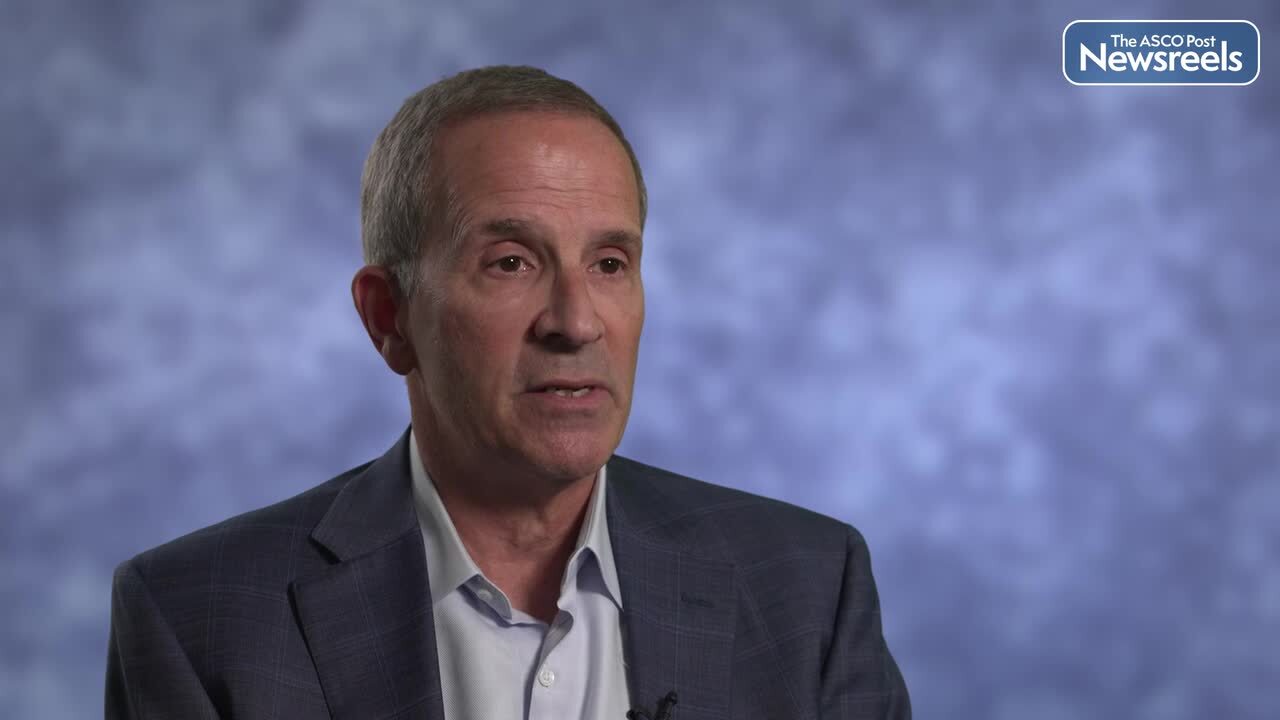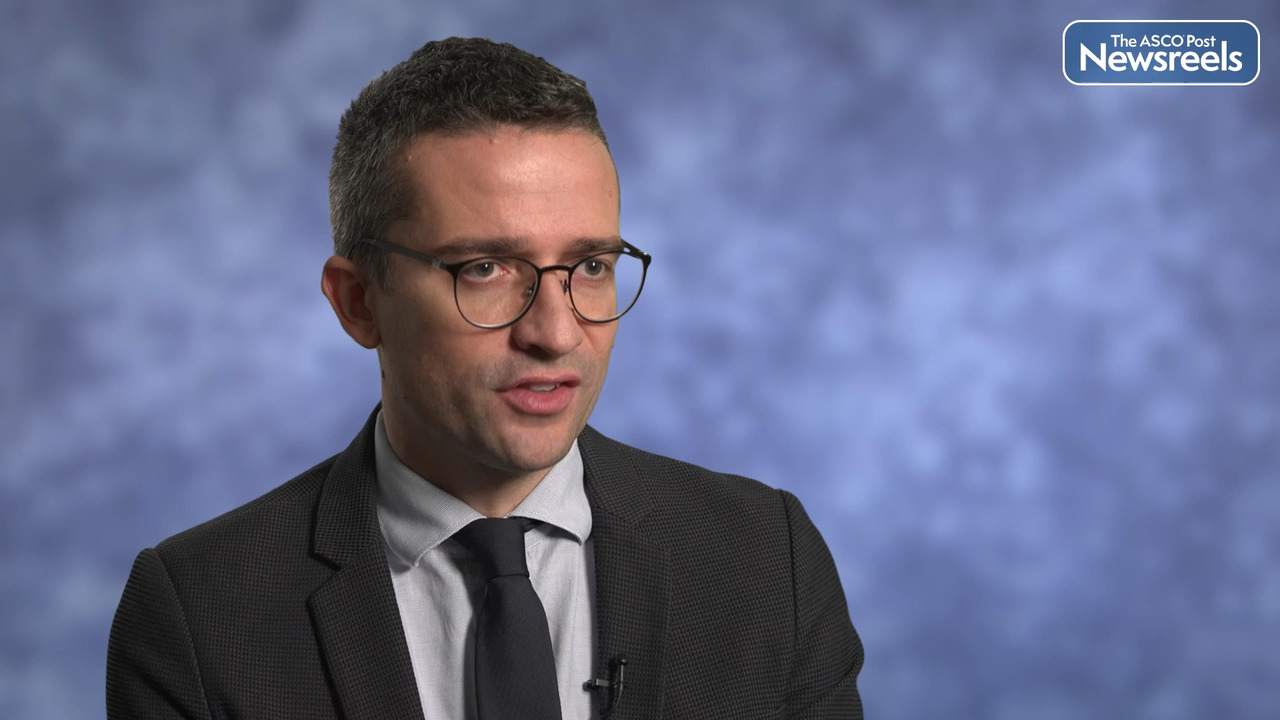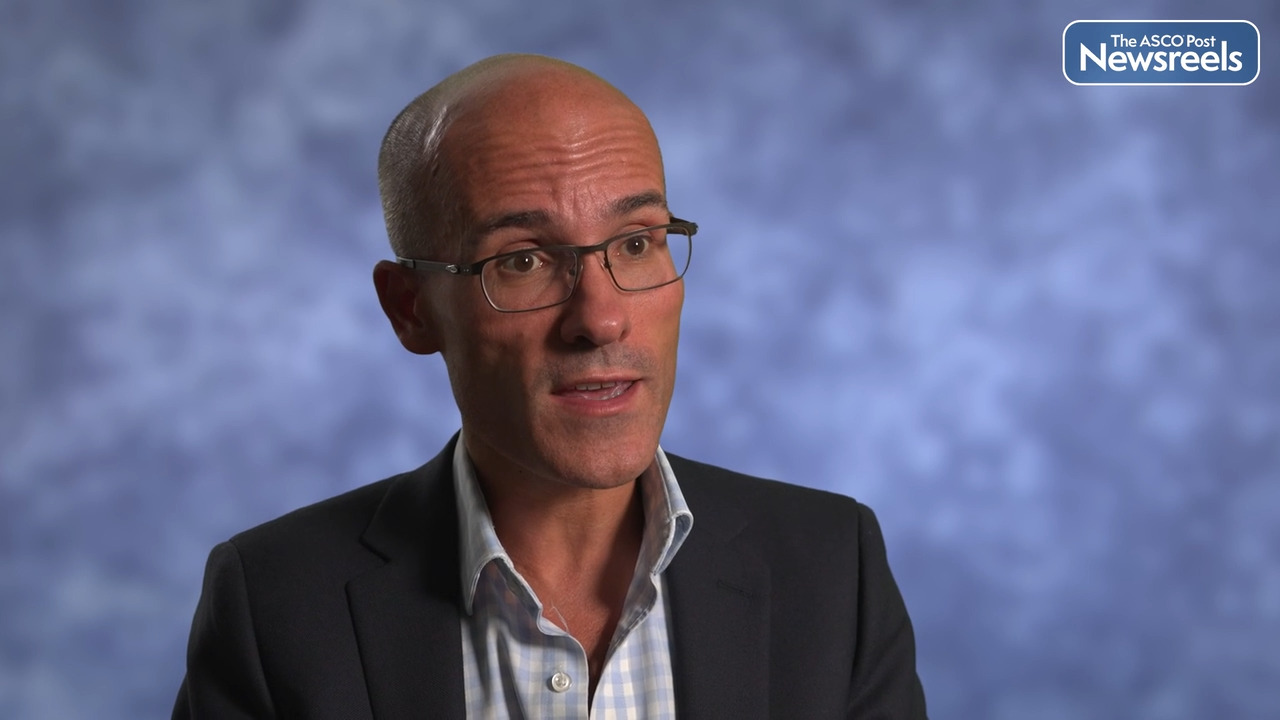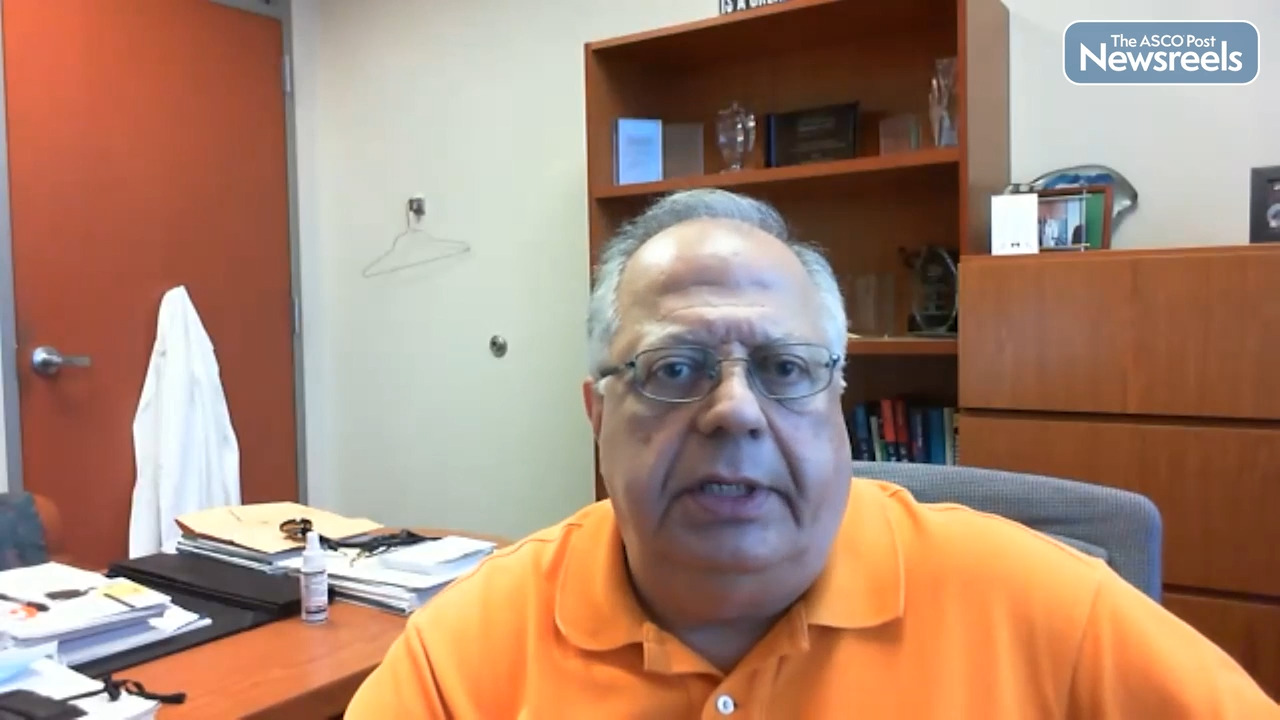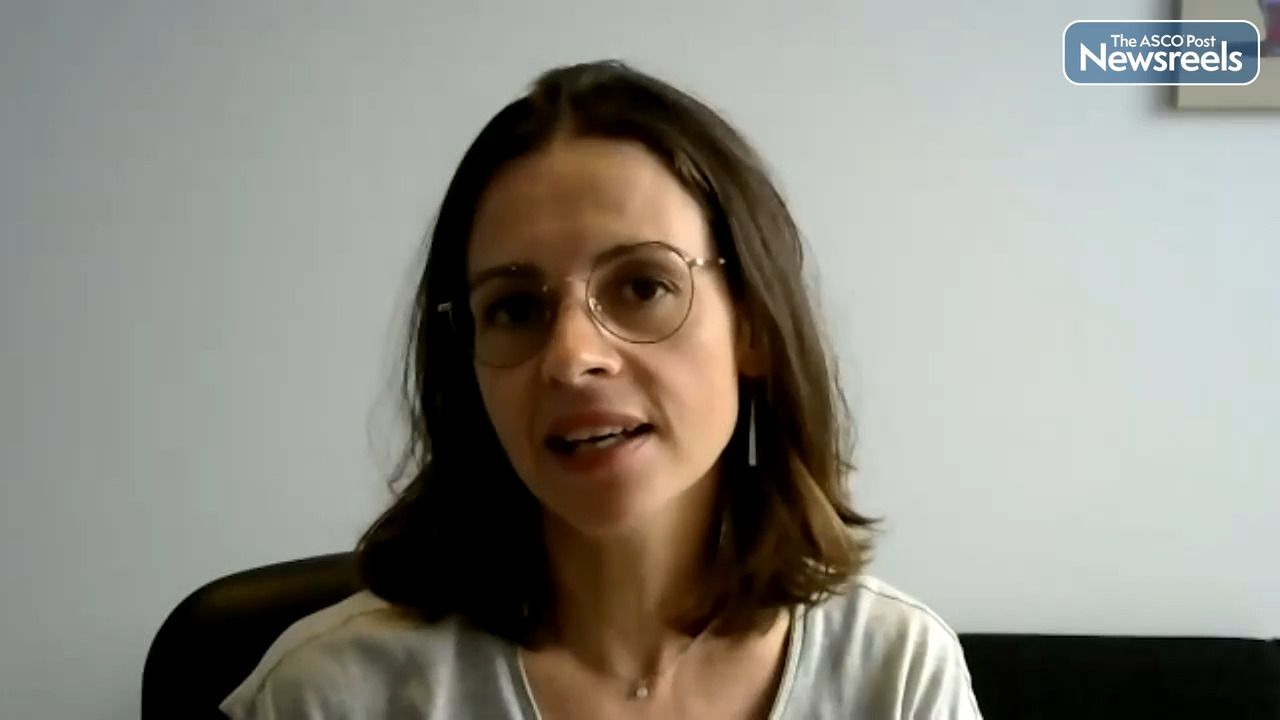Transcript
Disclaimer: This video transcript has not been proofread or edited and may contain errors.
EV-103 Cohort K, was a randomized Phase 2 study to determine the anti-tumor activity of enfortumab monotherapy or enfortumab and pembrolizumab as combination therapy in cisplatin-ineligible metastatic urothelial cancer patients who had not received treatment for metastatic disease. The first-line therapeutic options for patients who are cisplatin-ineligible, unfortunately, remain somewhat limited. Gemcitabine and carboplatin has modest activity and nivolumab maintenance is only available to patients who respond or have stable disease. Checkpoint inhibitor therapy as monotherapy is restricted to patients who are PD-L1-positive with atezolizumab or who are ineligible for platinum. EV and pembro, had previously been shown to have monotherapy activity in the second and third line setting leading to clinical benefit and improved survival in that setting. And this provided the rationale for testing the combination in EV-103. The first report of this combination was cohort A, which was recently published in JCO, which showed a 73% response rate and an encouraging safety profile.
And as a result, received FDA breakthrough therapy designation. EV-103 is a multi cohort study, and Cohort K is a randomized cohort to try to demonstrate the contribution of components of pembrolizumab and enfortumab to the activity in the first line setting that we observed. The sample size was based on trying to refine the estimate of the response rate, and it's important to note that this is a non-comparative Phase 2 study versus platinum-eligible metastatic urothelial cancer patients. The primary endpoint was response rate, and the response rate in this trial was 64.5% among patients receiving enfortumab vedotin, and pembrolizumab. The response rate for enfortumab monotherapy was 45%, which was certainly consistent with what we've seen in previous results of single agent therapy. Enfortumab and pembro led to 10.5% of patients having complete responses. And the median time to response for both arms, was about two months, and the median number of cycles received for EV-pembro was 11 and eight for EV monotherapy. When looking at the responses, 97% of patients experience tumor regression and activity was seen regardless of PD-L1 status.
The median progression free survival has not yet been reached with EV and pembro and the median overall survival is expected to change as time goes on, but was 22 months. The duration of response for EV-pembro was not reached, and about almost two thirds of patients were still responding at one year. There was not an association with nicotiflorin expression. Toxicity of EV and pembro did not reveal any new and unexpected toxicities. There was more skin toxicity with the combination compared to EV monotherapy, and this is expected because EV and pembro both independently have skin toxicity rashes, in particular as an overlapping side effect. Perhaps there might have been slightly more pneumonitis in the EV and pembro arm, but not dramatically increased compared to what you might expect with pembrolizumab. Peripheral neuropathy was seen in 60% of patients, although it was only grade three in 2.5%. Hyperglycemia was present in 14.5% of patients in grade three and 6.6% of patients, and in fact, similar to EV monotherapy. The pembrolizumab adverse events of special interests seem similar as to what had been previously reported, again, with the exception of severe skin reactions.
In summary, EV and pembro showed high anti-tumor activity with a response rate of 64.5% in patients with metastatic urothelial cancer ineligible for cisplatin compared to historical controls of gemcitabine and carboplatin where we expect a response rate 35 to 40%. There's a promising PFS and OS, and we expect those data to evolve. The duration of response has not been reached. The monotherapy EV and pembro-EV results were similar to what we've seen previously in EV monotherapy studies, and the combination is being further investigated in three randomized Phase 3 trials. EV-302, which is the confirmatory study for EV-103 Cohort K, in the first line setting for patients regardless of platinum eligibility, randomized to chemotherapy or EV and pembro. And then two Phase 3 neoadjuvant studies looking at perioperative therapy. Based on the results of this study, it's my opinion that EV and pembro has a high likelihood of becoming a standard option for cisplatin eligible metastatic urothelium cancer patients in the near future.
